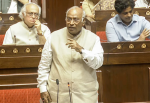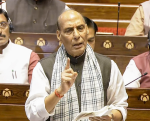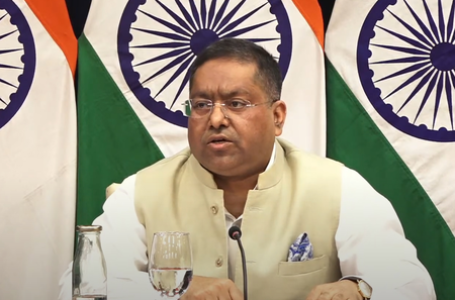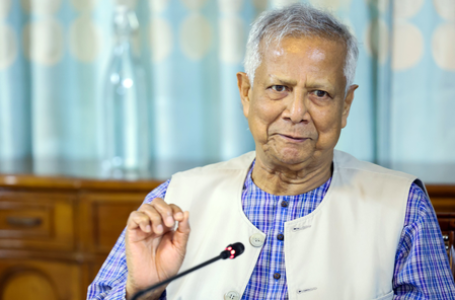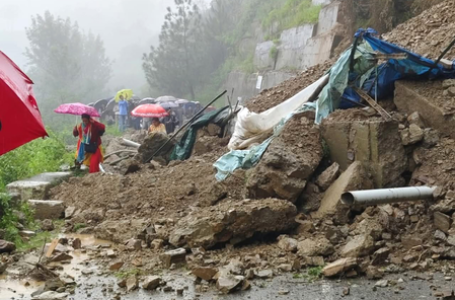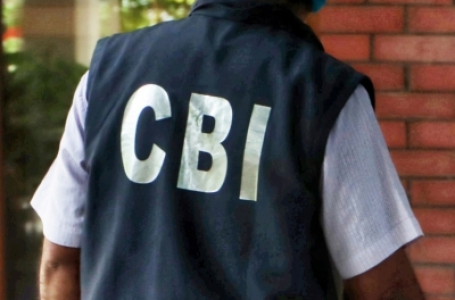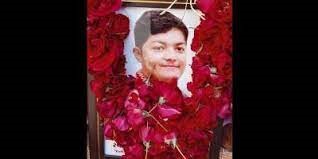
A picture of Darshan Solanki placed at the condolence meeting. (File Photo)
The inquiry committee constituted by Indian Institute of Technology Bombay (IIT-B) after the death of its Dalit student Darshan Solanki last month concluded that “deteriorating academic performance could have affected” the student to take the extreme step. However, student activists questioned the conclusion of the report.
The report of 12-member committee underlined that “that there is no specific evidence of direct caste-based discrimination”.
The family members of the deceased had alleged that caste-based discrimination at the premier institute was responsible for the suicide. Solanki’s sister categorically alleged that her brother had shared with her that he had faced caste discrimination at IIT-B. The report did include Solanki sister’s statement but concluded that academic pressure might have compelled Solanki to end his life.
The 18-year-old first-year student in the chemical engineering department jumped from his hostel building on February 12 resulting in his death. As per media reports, Solanki was a first-generation Dalit student from Ahmedabad, Gujarat.
“Other than the statement of DS’s [Darshan Solanki’s] sister, there is no specific evidence of direct caste-based discrimination faced by DS during his stay at IIT Bombay. The possibilities of substance abuse, accident or homicide can be ruled out,” the report said.
After Solanki’s death, several Bahujan students and student bodies alleged that it could be due to the “discriminative atmosphere” prevailing at the premier colleges in the country such as IITs. They had also said that the lack of facilities to address mental health concerns on the campus was also responsible for the death by suicide of Solanki, reported The Wire.
As per media report, the committee took view a total of five possibilities that could have resulted in Solanki’s death were considered by the probe committee: academic, personal relationships at IIT-B, caste-based discrimination, substance abuse, and accident/homicide.
The committee, which was formed on February 13, was led by Nand Kishore, professor, department of chemistry, and including five members from the Dalit and Adivasi communities – three faculty-members and two students – it has 12 members. 79 people deposed before it.
Criticism of the report
According to career.360.com, a website on education, several alumni and activists said that the report has actually exposed the IITs’ “faulty teaching and evaluation methods”. “The findings of the report expose that there is a link between the academic score and suicide at IITs and many other students who score poorly on the campus are also at risk,” said Singh.
It is to be noted that the Solanki was initially enthusiastic in the first half of the semester studying at IIT Bombay, but his performance deteriorated in the second half, reported the website. “But there was no mention of why he was performing poorly. Why didn’t they find out if performing low was someone’s choice or was there an underneath cause [due to which] a person has performed low?” questioned Singh. “Does the institution play any role in all this?” Another activist with the Ambedkar International Centre, Anil Wagle argued that internal committees are a “sham” in most institutes.
Dheeraj Singh, an alumnus of IIT Kanpur, Kharagpur and a social activist mobilising IITs alumni and faculty for SC ST welfare, ex-research staff in IIT Bombay, questioned the probe report, according to The Wire. He highlighted that there are no terms of reference (TOR) attached to the report brought out. “Does it mean the committee was doing the inquiry of its free will and not following the TOR mandate? Does TOR exist?” Singh posed questions to IIT-B authorities.
-INDIA NEWS STREAM



